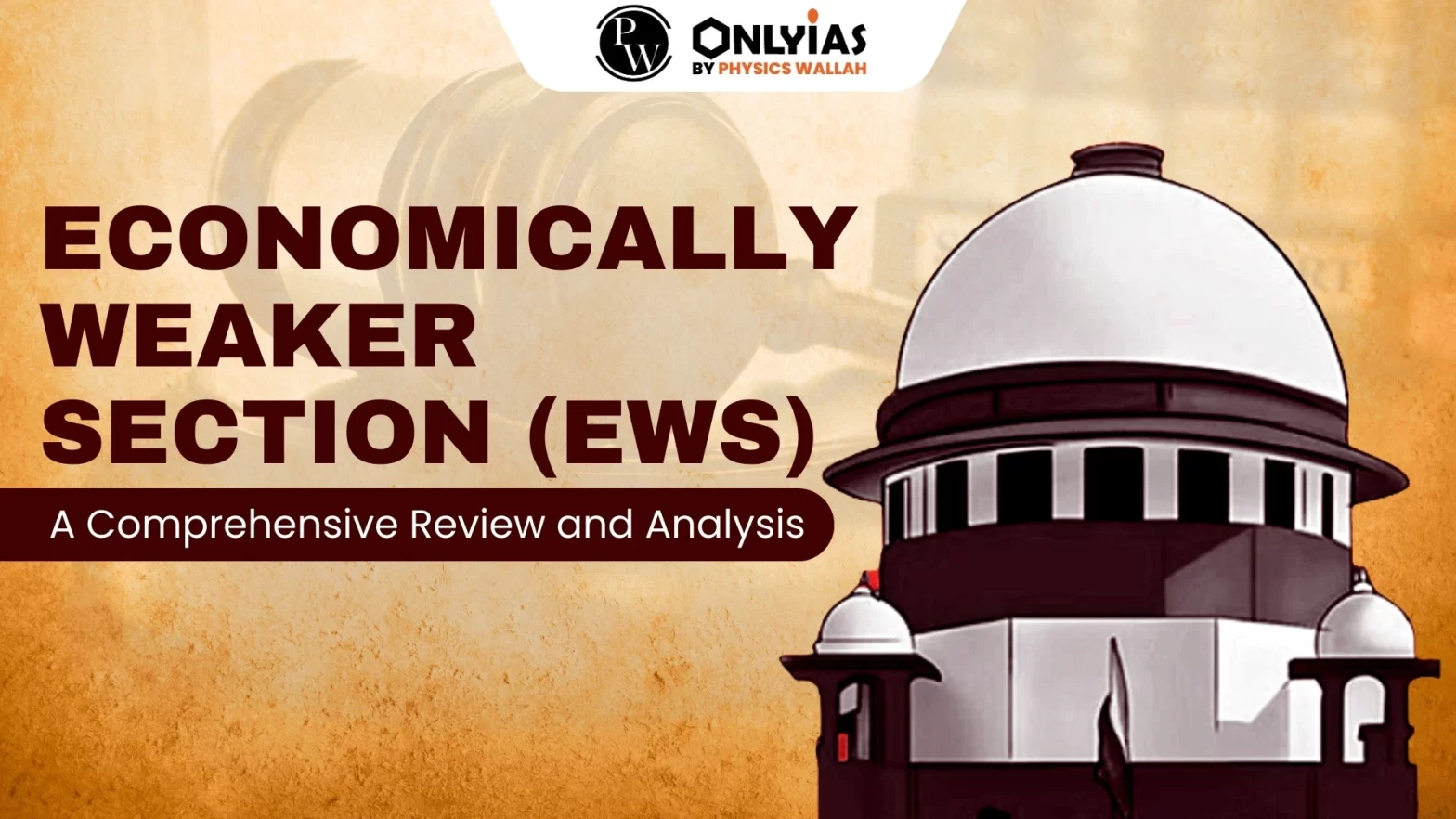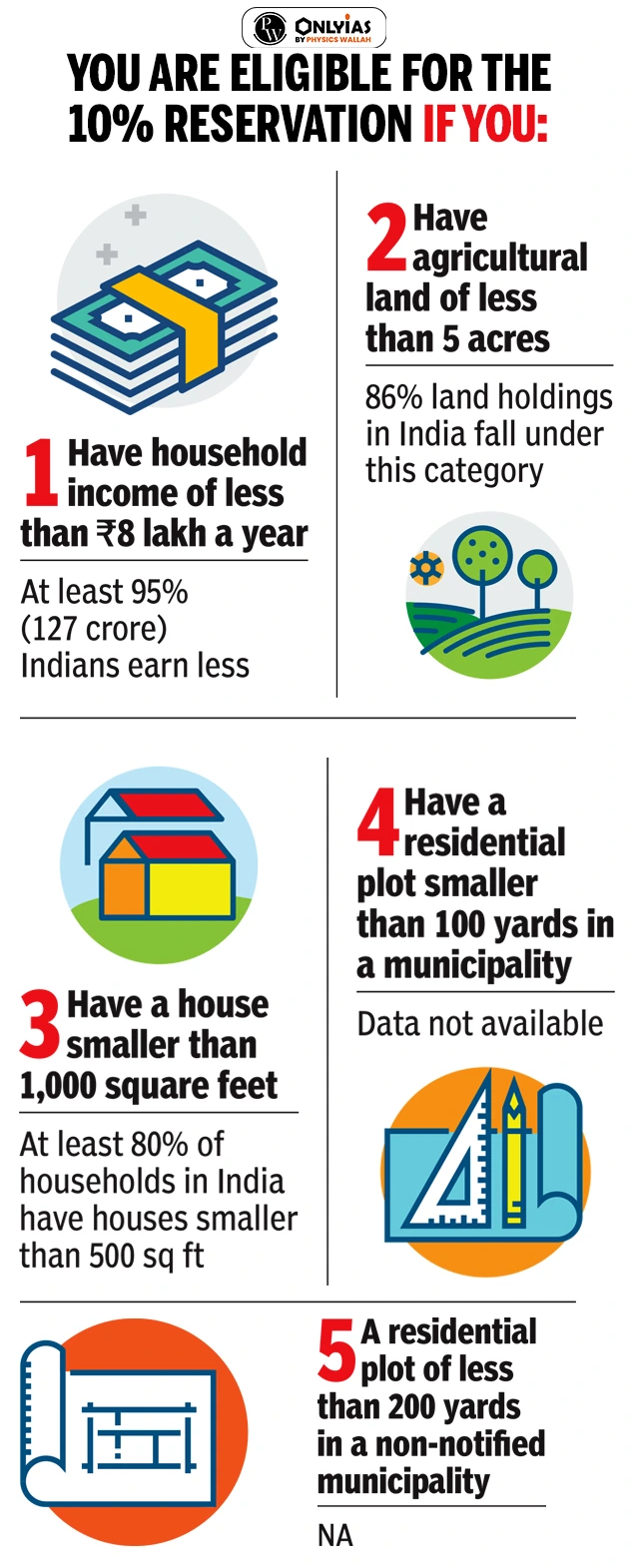Context: Recently, the Supreme Court rejected Petitions Challenging UPSC's Treatment of Civil Service Aspirants as General Category Candidates due to Missing EWS Certificates.



| Must Read | |
| NCERT Notes For UPSC | UPSC Daily Current Affairs |
| UPSC Blogs | UPSC Daily Editorials |
| Daily Current Affairs Quiz | Daily Main Answer Writing |
| UPSC Mains Previous Year Papers | UPSC Test Series 2024 |
The full form of EWS is the Economically Weaker Section.
No, the 10% EWS reservation is currently applicable to Government and Government-aided institutions and government jobs.
Families with a gross annual income below Rs 8 lakh are considered eligible for EWS reservation.
The Income and Asset Certificate for EWS reservation is issued by designated authorities such as District Magistrates, Collectors, or Tehsildars.
Yes, the EWS reservation quota is uniformly set at 10% for all states and union territories in India.
No, individuals belonging to SC, ST, or OBC categories are not eligible for the EWS reservation, as they are covered under their respective reserved categories.
<div class="new-fform">
</div>